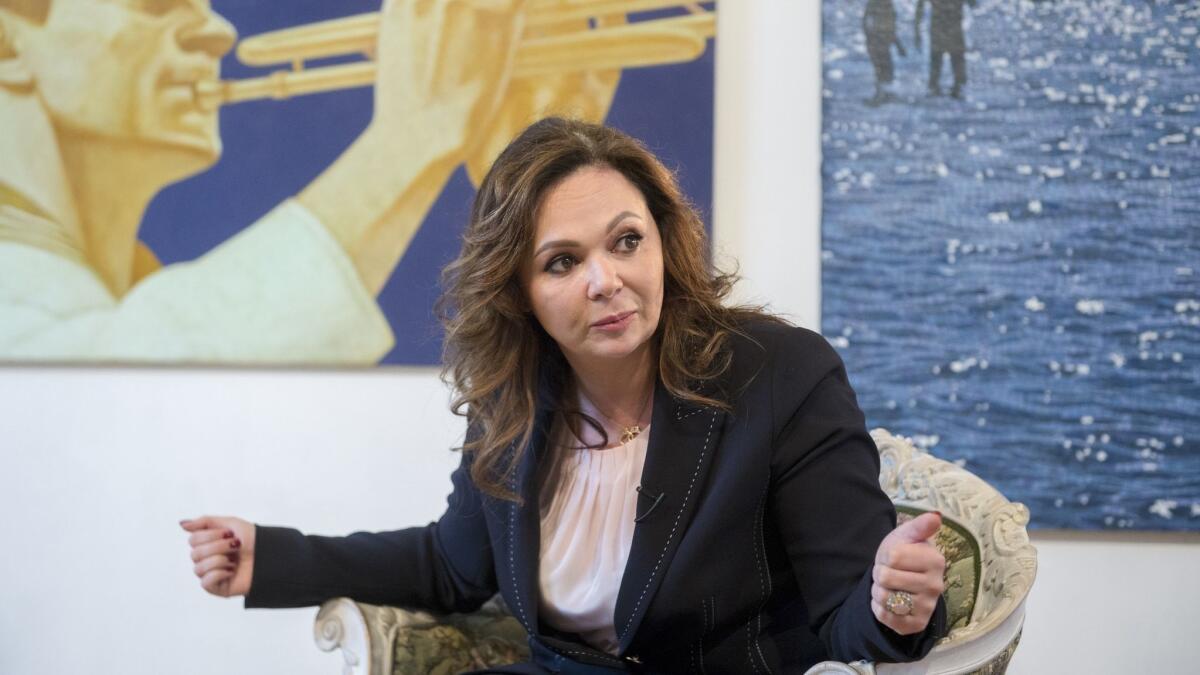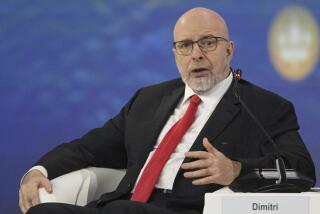Russian lawyer at Trump Tower meeting charged in separate case

A Russian lawyer whose role at a 2016 meeting at Trump Tower has come under scrutiny from special counsel Robert S. Mueller III was charged Tuesday in a separate case with obstructing justice in a money-laundering investigation.
Natalia Veselnitskaya became a central figure in the Mueller probe when it was revealed that in June 2016, she met with Donald Trump Jr., after an intermediary indicated she had dirt on Hillary Clinton.
But the charges unsealed Tuesday say she made a “misleading declaration” to the court in a civil case.
Veselnitskaya and others at Trump Tower in Manhattan on June 9, 2016, represented Prevezon Holdings in a civil case in which the U.S. attorney’s office in Manhattan sought millions of dollars in forfeiture from the company and others. The department had alleged in a civil complaint that a Russian criminal organization ran an elaborate tax refund scheme, stealing the identities of targeted companies and filing sham lawsuits to incur fake losses for refund purposes.
Those involved made about $230 million in tax refunds, prosecutors said, and filtered the money through shell companies and eventually into Prevezon, a Cyprus-based real estate corporation. Prevezon, prosecutors said, laundered the funds into real estate, including by investing in high-end commercial property and luxury apartments in Manhattan.
The parent company of the victim firms hired attorneys to investigate after learning of the sham lawsuits, including Russian lawyer Sergei Magnitsky, and they uncovered the fraud scheme, in which Russian government officials were complicit, prosecutors said.
Magnitsky was then arrested and died in custody. On the day he died, prosecutors said, he was beaten by guards with a rubber baton, and an ambulance crew called to treat him was deliberately kept outside of his cell until he was dead. The incident sparked the U.S. to pass the Magnitsky Act, which allowed the U.S. to sanction officials found to have committed human rights violations in Russia.
Last year, the U.S. attorney’s office settled its civil case against Prevezon for more than $5.8 million.
Devlin Barrett and Matt Zapotosky write for the Washington Post.
More to Read
Sign up for Essential California
The most important California stories and recommendations in your inbox every morning.
You may occasionally receive promotional content from the Los Angeles Times.









